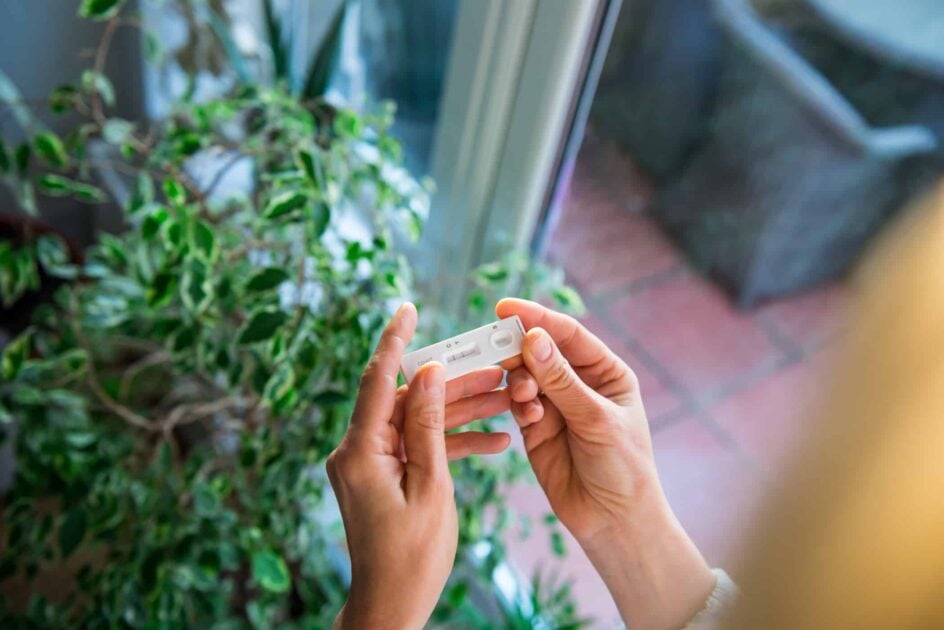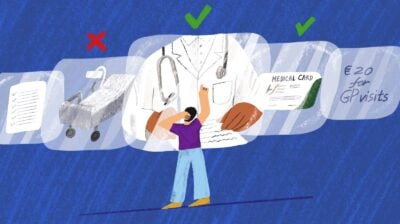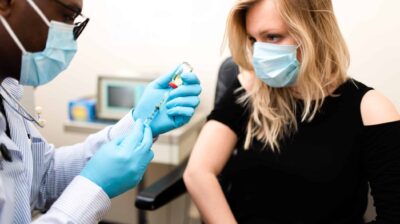What to do if you have symptoms of COVID-19
If you experience any symptoms of COVID-19, it’s important to self-isolate to avoid spreading the virus to others.

Being able to recognise the symptoms of COVID-19 is important in helping to reduce the spread of the virus. If you experience any symptoms, you will need to self-isolate until 48 hours after your symptoms end.
Symptoms can vary from person to person, but there are some symptoms that are more common than others. You may not experience all of these symptoms, or your symptoms might be very mild.
In this article:
- What are the symptoms of COVID-19?
- What should I do if I have symptoms of COVID-19?
- What to do if you test positive for COVID-19?
- Can I get vaccinated if I have symptoms of COVID-19?
What are the symptoms of COVID-19?
It can take up to two weeks for symptoms of COVID-19 to appear. You may not experience all of the symptoms, or your symptoms could be very mild.
The most common symptoms include:
- Fever (high temperature of 38 degrees Celsius or above)
- Having the chills
- A dry cough
- Fatigue (feeling really tired)
Other symptoms can include:
- A loss or change to your sense of taste or smell – either you can’t taste or smell anything, or things smell or taste different to normal
- Runny or blocked nose
- Sore throat
- Conjunctivitis (pink eye)
- Headache
- Muscle or joint pain
- Skin rash
- Fatigue
- Nausea or vomiting
- Diarrhoea
- Chills or dizziness
COVID-19 can also cause more severe symptoms, including:
- Shortness of breath or difficult breathing
- Loss of appetite
- Confusion
- Pain or pressure in the chest
You may not have all of these symptoms, and they can take up to 14 days to appear. Symptoms may vary for different age groups or different variants of the virus.
If you are very short of breath and cannot complete a sentence, call 999 or 112.
What should I do if I have symptoms of Covid-19?
The HSE no longer provides a service for people to book PCR tests or order antigen tests. Healthcare workers can still order antigen tests online in some situations. You do not need a Covid-19 test unless a GP or healthcare worker advises you to have one. You can use antigen tests bought in pharmacies or shops
If you have symptoms of Covid-19, it is important to self-isolate for five days.
What to do if you test positive for COVID-19
There are a number of steps you will need to follow if you have tested positive for COVID-19:
Self-isolate for five days
If you have tested positive for COVID-19, you will need to continue to self-isolate, which means staying in your room and avoiding contact with other people.
You will need to start self-isolating as soon as you notice any symptoms or when you get a positive test result if you have no symptoms. This is considered ‘day zero’ when counting your days in isolation.
You must self-isolate for five days from ‘day zero’.
You can end self-isolation if your symptoms have fully resolved or if they are mostly gone after your five-day isolation period.
Wear a medical or respirator mask
For a period of 10 days since ‘day zero’, you should wear a medical mask (these are usually blue and will have a ‘medical’ label on the box along with a CE mark), or a respirator mask, also known as an FFP2 or FFP3 mask.
The mask should fit snugly on your face with no gaps at the side.
Find out more about the different types of masks.
Can I get vaccinated if I have symptoms?
If you are experiencing symptoms, do not attend your vaccination appointment if you have one scheduled. Instead, you will need to contact the service you booked your vaccine through to request a new appointment date. To request a new appointment, phone your GP, reply to your appointment text with the word ‘New’ or phone HSE Live on 1800 700 700.






